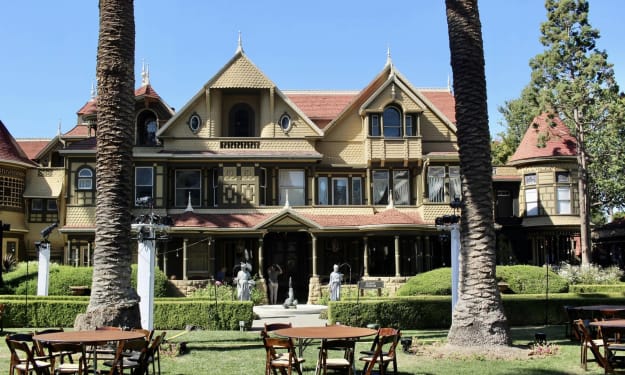
Life, much like a strategic game, presents us with myriad choices, often accompanied by the shadows of consequence and collaboration. In the vast theater of decision-making, the Prisoner's Dilemma emerges as a poignant framework, reflecting the tension between individual interest and communal welfare. As we navigate the complex interplay of cooperation and betrayal in our daily lives, the echoes of this psychological and philosophical dilemma reverberate in unexpected corners, influencing everything from personal relationships to societal structures.
The Genesis of the Dilemma: Understanding the Basics
The roots of the Prisoner's Dilemma can be traced back to game theory, a field that explores the strategic interactions between rational decision-makers. Conceived by Merrill Flood and Melvin Dresher in 1950, this paradigm presents a scenario where two suspects, apprehended for a crime but isolated from communication, must decide whether to cooperate or betray their counterpart.
In this hypothetical scenario, the optimal outcome occurs when both prisoners remain silent, leading to a reduced sentence for both. However, the allure of personal gain tempts each individual to betray the other, potentially resulting in a harsher punishment for the betrayed party. The paradox lies in the fact that even though mutual cooperation is the most favorable outcome for both, the rational self-interest of each prisoner inclines them towards betrayal.
Everyday Applications: A Tapestry of Dilemmas
As we delve into the tapestry of daily life, we find the threads of the Prisoner's Dilemma woven into various situations. Consider workplace collaborations, where individuals must decide whether to contribute wholeheartedly to a team project or slack off, hoping to reap the benefits of others' efforts. The dilemma emerges when personal ambition clashes with the collective goal, and the fear of being the one who puts in more effort than their peers lingers in the background.
In interpersonal relationships, the Prisoner's Dilemma manifests in the delicate dance of trust and loyalty. Couples facing decisions about fidelity or financial transparency grapple with the balance between mutual cooperation and potential betrayal. The choice to disclose or withhold information becomes a strategic move, as each partner assesses the risks and rewards of their actions.
Friendships, too, are not immune to the subtle influence of this dilemma. Consider a scenario where friends must decide whether to collaborate on a shared project or pursue individual success. The fear of being the one who invests more time and effort, only to see others benefit without reciprocation, mirrors the classic prisoner's dilemma dynamics.
Economic Ecosystems: The Corporate Dilemma
Zooming out to the macrocosm of economic ecosystems, corporations and businesses grapple with their own iterations of the Prisoner's Dilemma. In an environment where competition and cooperation coexist, firms face decisions about whether to engage in price-fixing collusion or pursue individual profit maximization.
The tragedy of the commons, a concept closely aligned with the Prisoner's Dilemma, is vividly illustrated in the realm of environmental sustainability. Nations, driven by their individual economic interests, may exploit shared resources to the detriment of the global ecosystem. The pursuit of short-term gains often outweighs the collective responsibility for long-term environmental well-being.
Political Maneuvering: A Societal Quandary
The Prisoner's Dilemma extends its reach into the political landscape, where nations grapple with questions of alliances, disarmament, and international cooperation. The decision to trust or betray neighboring countries reflects the delicate balance between national self-interest and global stability.
Within societies, the tension between individual and communal interests plays out in debates about taxation, social welfare, and resource allocation. The paradox of citizens desiring public goods while seeking to minimize personal contributions echoes the fundamental conflict encapsulated in the Prisoner's Dilemma.
Strategies for Navigating Life's Dilemmas:
As we encounter the Prisoner's Dilemma in various facets of life, the question arises: How can we navigate these intricate scenarios to achieve the most favorable outcomes?
Building Trust through Communication:
Open communication serves as a powerful antidote to the inherent distrust embedded in the Prisoner's Dilemma. By fostering transparency and dialogue, individuals can break down barriers and build mutual trust, paving the way for cooperative solutions.
Long-Term Perspective:
Embracing a long-term perspective can alter the dynamics of the dilemma. When individuals prioritize sustained cooperation over short-term gains, they contribute to the development of a more stable and trustworthy environment.
Incentivizing Cooperation:
External incentives, such as rewards for collaborative efforts, can reshape the decision-making landscape. By aligning personal interests with communal goals, societies and organizations can encourage cooperation while mitigating the allure of betrayal.
Iterative Interactions:
Recognizing that life is a series of repeated interactions allows individuals to reassess their strategies. The iterative nature of relationships and collaborations provides opportunities for learning and adaptation, gradually fostering a culture of cooperation.
Institutional Design:
In the macroscopic realm of nations and corporations, thoughtful institutional design can influence decision-making outcomes. Crafting policies that incentivize cooperation and penalize betrayal contributes to the establishment of a conducive environment.
Conclusion: Decoding the Human Dilemma
In the grand theater of life, the Prisoner's Dilemma takes center stage, influencing choices and outcomes across diverse scenarios. From personal relationships to global politics, the interplay between cooperation and betrayal shapes the narrative of our existence.
As we navigate the intricate web of dilemmas, armed with an understanding of the Prisoner's Dilemma, we gain insights into the complexities of human behavior. It is through conscious choices, communication, and a commitment to long-term goals that we can navigate these dilemmas and strive for outcomes that balance personal interests with the greater good.
The Prisoner's Dilemma, far from being a theoretical construct, emerges as a lens through which we can analyze, interpret, and perhaps, transcend the intricate dance of cooperation and betrayal woven into the fabric of our daily lives. In embracing the challenge of decoding this human dilemma, we embark on a journey towards a more collaborative and harmonious existence.
About the Creator
Kei Ben
A fresh read goes a long way.






Comments
Kei Ben is not accepting comments at the moment
Want to show your support? Send them a one-off tip.